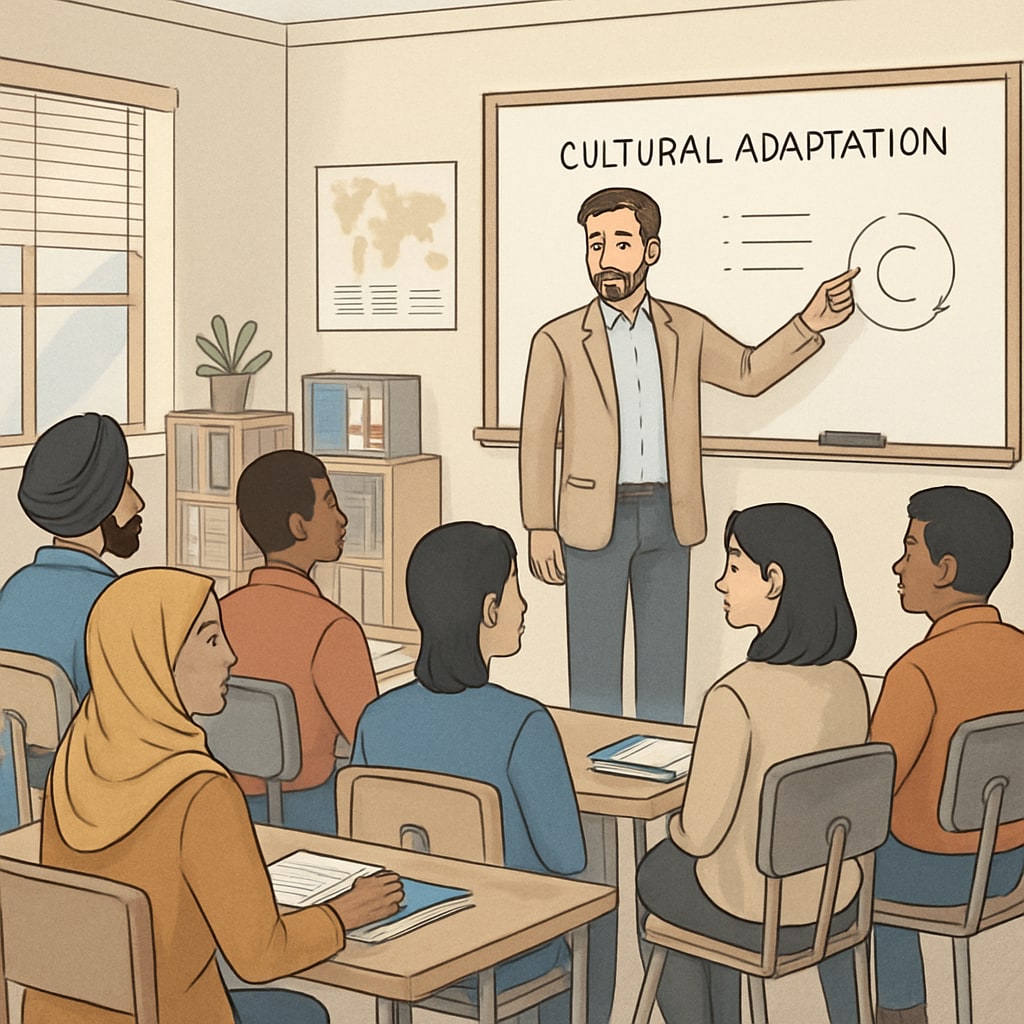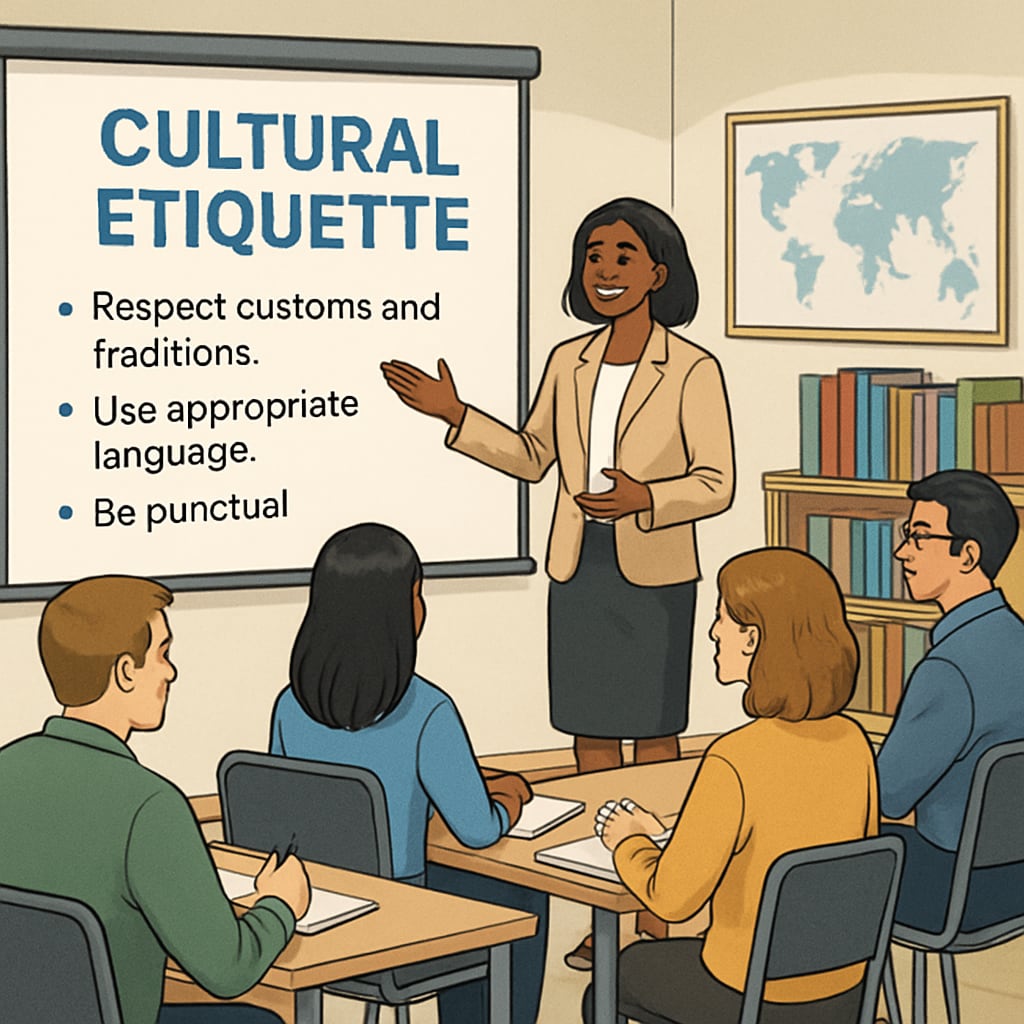For adult immigrants entering new environments, adult education, cultural adaptation, and basic knowledge are critical in navigating differences and successfully integrating into society. Relocation to a foreign country comes with the challenge of adapting to unfamiliar customs, social norms, and cultural expectations. This article highlights the importance of educational programs tailored to adult immigrants in New York City, evaluates their benefits, and offers practical strategies for developing cultural awareness and identity in diverse settings.
The Importance of Adult Education for Cultural Adaptation
Adult immigrants are often faced with the dual challenge of learning a new language and adapting to a new culture. This can be overwhelming, particularly for those with minimal formal education or limited exposure to Western norms. Structured adult education programs focusing on cultural adaptation provide a supportive environment for learning essential skills.
For example, programs often cover topics like social etiquette, workplace behavior, and navigating public services. These courses aim to foster both technical knowledge, such as understanding legal rights, and soft skills, like effective communication in diverse settings. As a result, adult immigrants can gain confidence and a sense of belonging in their new communities.

Resources for Adult Education in New York City
New York City, known for its vibrant immigrant population, offers a range of educational programs designed to address the challenges of cultural adaptation. Non-profit organizations, community colleges, and government-funded initiatives play a significant role in bridging the cultural gap for immigrants.
Some notable programs include:
- We Are New York (WANY): This initiative provides free English conversation classes with a focus on practical scenarios, such as visiting a doctor or applying for a job.
- NYC Department of Youth and Community Development (DYCD): Through its Adult Literacy Program, the DYCD offers language and cultural education tailored to immigrant needs.
- Community-based Organizations: Groups like the New York Immigration Coalition (NYIC) provide workshops on civic engagement and cultural awareness.
These programs not only impart knowledge but also create opportunities for social interaction, enabling participants to network and build friendships within the immigrant community and beyond.

Strategies for Building Cultural Identity and Belonging
Cultural adaptation is not just about learning new customs; it’s also about integrating personal identity with the norms of the new environment. Here are some strategies that can help adult immigrants foster a sense of cultural belonging:
- Engage in Community Events: Participating in local festivals, workshops, and volunteer opportunities is a great way to experience the culture firsthand.
- Seek Mentorship: Connecting with individuals who have successfully navigated cultural adaptation can provide guidance and inspiration.
- Utilize Technology: Apps and online platforms, such as Duolingo for language learning or Meetup for community engagement, can supplement traditional education.
In addition, it is essential for educators and policymakers to adopt culturally sensitive approaches that respect and incorporate the diverse backgrounds of their students. For instance, designing curricula that celebrate multicultural perspectives can make learning more relatable and inclusive.
The Broader Impact of Cultural Adaptation Programs
Successful cultural adaptation benefits not only the immigrants themselves but also the broader community. By fostering mutual understanding and reducing cultural misunderstandings, these programs contribute to social cohesion and economic prosperity. For example, culturally aware employees are better equipped to work in diverse teams, leading to improved workplace harmony and productivity.
Research has shown that communities with strong cultural adaptation programs experience lower rates of social isolation and higher levels of civic engagement among immigrant populations. This underscores the importance of continued investment in adult education initiatives.
In conclusion, adult education, cultural adaptation, and basic knowledge are vital tools for adult immigrants seeking to navigate the complexities of life in a new country. By equipping individuals with the necessary skills and resources, these programs pave the way for successful integration and the creation of vibrant, inclusive communities.
Readability guidance: To ensure this article is accessible, it uses concise paragraphs, lists, and clear transitions. The structure balances informative content with actionable advice, making it both practical and engaging for readers.


